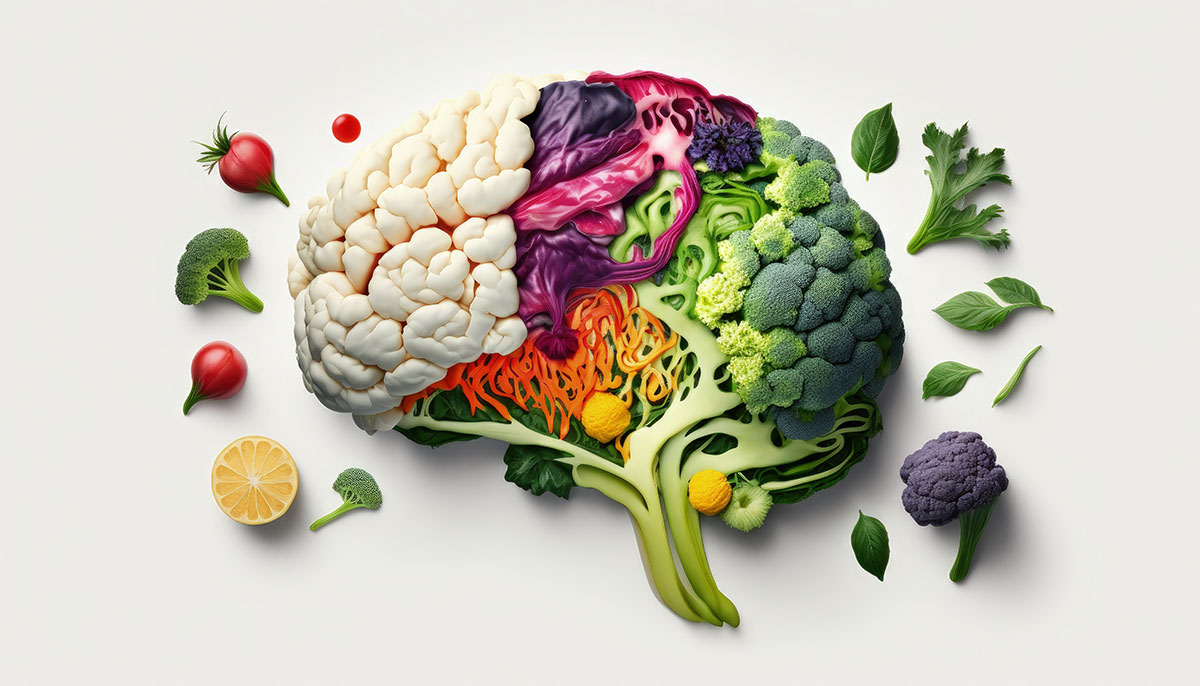Get a Free box of Gummies ($120 value) when you spend $200 or more. Now through Monday

As we get older, we focus more on the importance of managing our overall health and how we can keep our brain healthy. Understanding how factors such as social interaction, physical activity, sleep, and nutrition play a role in supporting memory and cognition and healthy brain functioning will help you to understand what steps you can take to support positive brain health.
In this blog you will gain valuable insight on what you can do to support healthy aging and how to keep your brain healthy.
Improving one’s cognitive health by keeping the brain healthy is important at every stage of life, but especially as we age. To some this means being able to remember without struggling, while for others it is being able to continue to exercise their independence and carry out their activities of daily living (ADLs).
But what defines brain health? Though there is not a global definition that has been agreed upon, credible institutions like the American Heart Association/American Stroke Association (AHA/ASA) and the US Centers for Disease Control and Prevention (CDC) weigh in on this.1
The (AHA/ASA) presidential advisory defines optimal brain health as “average performance levels among all people at that age who are free of known brain or other organ system diseases in terms of decline from function levels, or as ability to perform all activities that the individual wishes to undertake.” While the CDC defines brain health as “an ability to perform all the mental processes of cognition, including the ability to learn and judge, use language, and remember.”1,2
Though ongoing research is warranted regarding cognitive health and how to keep the brain healthy, there are some actions that can be taken that may support cognition and healthy aging including physical activity, social and cognitive stimulation as well as diet.3
We know that a healthy diet can improve our physical health, but did you know that what you eat can help to keep your brain healthy too? How exciting to hear this —right? So, let’s read on.
First, it is only fair to take some pressure off here and encourage you to keep in mind that it’s wise to consider taking small steps when looking to make any changes in your diet.
Once you assess what you are presently doing and how you can benefit from some healthy changes, then choose just one area to focus on daily and master that with mindful practice. Small steps will lead to a successful change for the long haul — so hang in here.
Now, let’s take a look at the importance of optimal nutrition and how it fuels your body, mind and spirit!
Since our brain is the organ that runs all of the voluntary and involuntary functions of our body and directs and responds to everything we do, our brain’s health is vitally important. A diet that is rich in fruits and vegetables, legumes, whole grains, healthy fats, lean protein, and low-fat dairy foods lays out a rather good map of how to keep the brain healthy. Oh, and let’s not forget we need to hit the brakes on those overly processed foods.
Eating foods from each of the food groups provides a wide variety of nutrients. So, what’s an easy way to remember how to spruce up your plate?
These recommendations are in accordance with the USDA’s MyPlate and incorporate the Dietary Guidelines for Americans, 2020-2025, and can be personalized for everyone.4
Taking a close-up look at nutrient-rich foods and how they may protect the brain is next!
Plant-based foods provide a substantial amount of antioxidative vitamins as well as various phytochemicals or phytonutrients.
Did you know that there are more than 10,000 different types of phytonutrients? These plant-based nutrients provide color and flavor in plants and many health benefits. Due to their antioxidant activity, these nutrients may not only support the maintenance of good health but may function as anti-inflammatory agents.5
Some phytonutrients that you may be familiar with are found in many of the foods you may eat each day such as: 6,7,8,9
Antioxidants, like Vitamins C, E and A help to fight against oxidative damage by stopping free radicals. Both endogenous (inside the body) and exogenous (from our diet or supplementation) antioxidants also play a role in repairing and removing these free radicals from the body.
Since the brain is made up of about 40% of lipid or fat content it is super important that the body continues to be provided with adequate antioxidants to protect it from the damage of oxidative stress.9,10
If you immediately thought — omega-3 fatty acids like Docosahexaenoic acid (DHA) then you are right on target! For decades research has shown that DHA is an integral part of supporting brain health, promoting cognition and protecting the neurons from damage (neurodegeneration).11, 12, 13
Foods rich in omega-3 fatty acids include fatty fish such as salmon, freshwater trout, and mackerel (low in mercury too). The 2020-2025 Dietary Guidelines for Americans recommends adults consume at least 4 ounces of seafood twice per week.13 Omega-3 fatty acids are also found naturally in walnuts, flax seeds, chia seeds, and algae.
What’s going on with B vitamins and cognition? Research suggests that vitamin B6 (pyridoxine), vitamin B9 (folate or folic acid) and vitamin B12 (cobalamin) may play a role in supporting cognition for those individuals who have mild memory problems associated with aging.14 One of the main functions of these B vitamins is to assist in metabolizing homocysteine, an amino acid.
Though there isn’t enough reliable evidence to connect homocysteine to a person’s decline in cognition, there are observational studies that indicate a possible correlation between cognitive decline and increased levels of this amino acid.14 You can also speak with your healthcare provider if you have additional questions regarding how B-vitamins may play a role in your health and well-being.
Another nutrient of interest in keeping the brain healthy is choline. Choline makes acetylcholine a neurotransmitter in the brain that is essential for memory, mood, and other brain and nervous system functions.15 Dietary sources includeeggs,meat, poultry, fish, dairy products, cruciferous vegetables, nuts, seeds, and whole grains.15
Though diet plays a large role in maintaining a healthy brain, a healthy lifestyle is equally important.
You have probably heard that it’s important to get involved in activities or to make certain we socialize with others regularly as we grow older. Well, staying engaged as you grow older may have important cognitive benefits.
Interestingly, one study found that older adults who learned a skill like quilting or became involved in digital photography had more memory improvement than those who only socialized or did less cognitively demanding activities.16
Research on engagement in activities such as music, theater, dance, and creative writing has shown some promise for supporting better memory, self-esteem, as well as reduced stress and increased social interaction, but more research is needed in these areas.16
It is no secret that sleep is critical for overall health including keeping your brain healthy. According to an article shared by Mayo Clinic, sleep is important because during sleep, the body clears out clumps of protein, beta-amyloid. When this protein hardens these clumps may cause nerve cells in the brain to die. Poor sleep can also affect overall health, leading to other risk factors such as high blood pressure and diabetes.17
Exercise plays a large part in the physical health of individuals and supports brain health too. According to Harvard Health, studies have suggested that the parts of the brain that control thinking, and memory have greater volume in people who exercise regularly than those who don’t exercise. Exercise also boosts mood and reduces stress. Staying active can help support healthy glucose metabolism and manage cardiovascular health too — which can affect the health of our brain cells.18
As you can see according to experts there is a connection between your physical health and keeping your brain healthy. Be certain that you are diligent with your medical follow-ups with your healthcare providers. Don’t feel embarrassed to ask questions or discuss any concerns you may have about your cognition or health in general.
Stay active, eat well, and settle in for some productive sleep each night. Connect with friends and loved ones, volunteer, take a class to learn something that interests you and —enjoy life!
These statements have not been evaluated by the Food and Drug Administration. These products are not intended to diagnose, treat, cure, mitigate, or prevent any disease. Individual results may vary. The information provided in this blog is for educational and informational purposes only and should not be construed as medical advice.

Ken Swartz, MS is the co-founder, Chairman Emeritus, and former Chief Science Officer at C60 Power, a health and wellness company committed to delivering the highest quality Carbon 60 products available. Ken earned a Master of Science degree from the University of Colorado at Denver and a Bachelor of Science in Economics from Arizona State University.’
References
10.. Lee, Kyung Hee et al. “Neuroprotective Effect of Antioxidants in the Brain.” International journal of molecular sciences vol. 21,19 7152. 28 Sep. 2020, doi:10.3390/ijms21197152